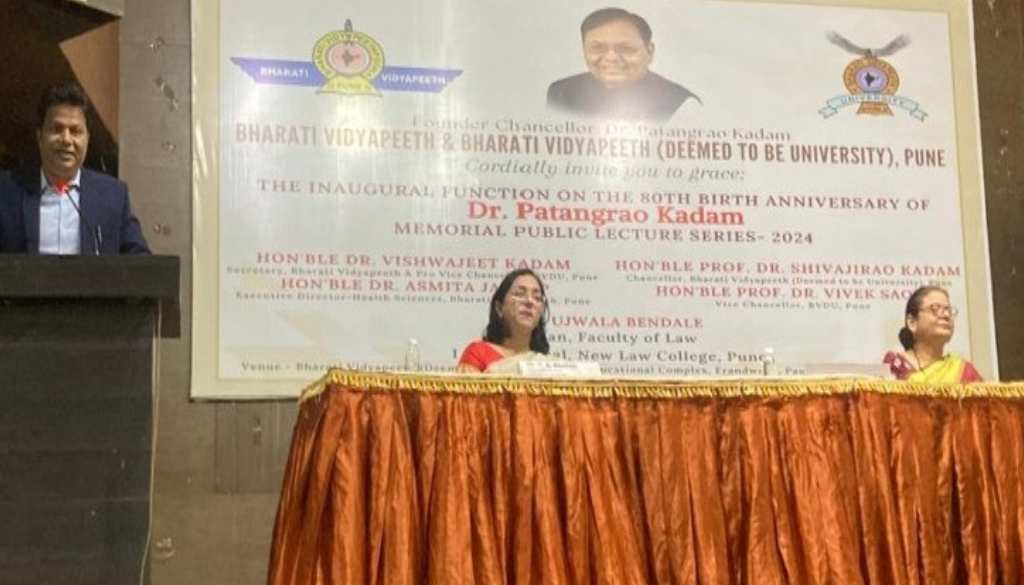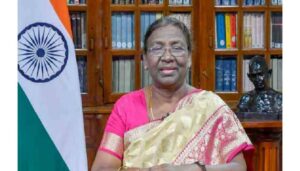Uniform Civil Code: MHA’s Adv. Amar Mulla Addresses Historical Evolution and Current Dynamics

Kothrud, 11th January 2024: Bharati Vidyapeeth (Deemed to be University) New Law College Pune celebrated the 80th Birth Anniversary of Dr. Patangrao Kadam by organizing the ‘Dr. Patangrao Kadam Memorial Public Lecture Series – 2024’ on 09th January, 2024, focusing on the Uniform Civil Code and Muslim Law. The guest speaker for this occasion was Adv. Amar (Imtiyaz) Sahabuddin Mulla, Senior Advisor at the Home Ministry, Government of India, New Delhi.
Under the guidance of Dr. Ujwala Bendale, Dean & In Charge Principal of New Law College, along with Dr. Jyoti Dharm (Vice Principal) and Dr. Vidya Dhere (IQAC Coordinator), the event was successfully coordinated by Dr. Rohit H Surawase, Assistant Professor.
Advocate Mulla delved into the historical background and evolution of Muslim Law and its sources. He provided insights into the evolution of Sharia Law, its application during the medieval period in India, and its transition during the British era, where a common law system was adopted for the entire country. Adv. Mulla also discussed various provisions of Muslim law, such as Nikah, contracts, types of divorce, and maintenance provisions. He emphasized the necessity and importance of the Uniform Civil Code in this context.
Highlighting that UCC aims for uniformity in the application of laws, Adv. Mulla emphasized that all citizens should be governed by the same set of civil laws, regardless of their background or beliefs. He particularly addressed the situation of women under personal laws, pointing out that UCC can play a crucial role in eliminating gender discrimination inherent in such laws, thereby promoting gender justice, equality, and the dignity of women.
In his unique style, Adv. Mulla elaborated on the significance of the Uniform Civil Code in the current dynamics of Indian society. He further discussed key points, emphasizing the importance of UCC in providing equal status to all citizens, irrespective of their religion, caste, or community. This principle aligns with the Constitution’s mandate under Directive Principles of State Policy, as reflected in Article 44, which states that the state shall strive to secure a UCC throughout the territory of India.
Throughout the session, law students, irrespective of their classes, actively participated by posing questions and engaging in discussions with Adv. Mulla on various aspects related to the topic.





